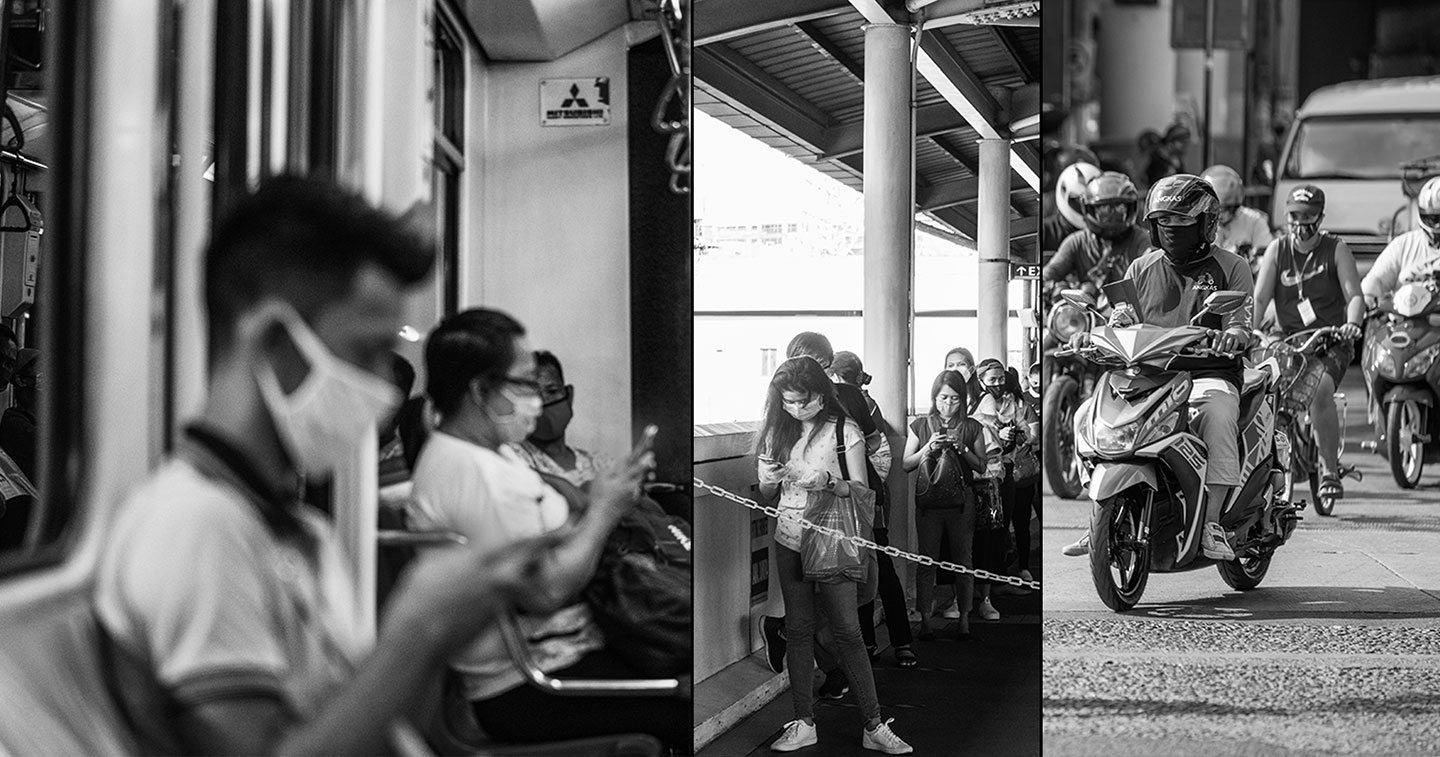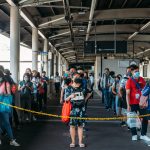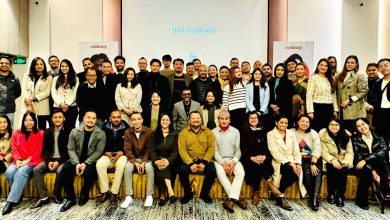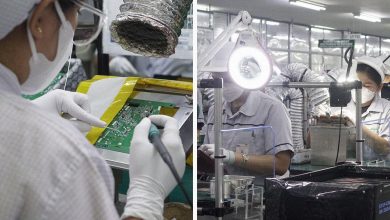MANILA, Philippines– Facebook Philippines’ Country Director John Rubio carries out a retrospect of the year 2020 by far and shares how the trends posed to last for years have been compressed into a span of months.
A change of pace for the trends also meant a change of pace for digital consumers; a spike in online selling and home streaming have emerged in people’s attempt to connect. With this comes the adapting business models to discover products and services. Here he shares insights into the future of e-commerce and how Facebook embraces the digital wave:
At the start of the year, we were excited to see major social trends in Asia Pacific and how they were influencing businesses in the Philippines. Marked by the rise of messaging, e-commerce, conversational commerce and the increasing popularity of video in its diverse forms, these trends were set to inform our approach to connecting people and businesses over the next few years.
But 2020 had other plans.
Taal volcano erupted, disrupting communities and livelihoods for weeks. Less than a month later, we were hearing growing concerns around COVID-19 globally and in the country. The effects of the pandemic have been personal and far-reaching. And it has taken the trends that might have seen wider adoption over the next five years, and compressed them into a span of months. As people sheltered in place, we saw more people engaging in online activities and using our platform to stay connected with people and businesses that are important to them. Across Asia Pacific, consumers are reporting a 32 percent increase in online shopping activities and a 42 percent increase in home streaming.
Businesses of all sizes have been compelled to change their model and adapt to selling online. Even those who historically viewed digital as a secondary channel are having to reorient every aspect of their business to enable online shopping. This is why Facebook has made its move into shopping with our recent announcement of Facebook Shops — a way for businesses to set up a single online store across Facebook and Instagram for free. We look forward to making Shops available in the Philippines soon.
While physical stores will always be important to the social and economic well-being of local communities, it’s clear that e-commerce is here to stay. It will continue to power the isolation economy even as restrictions slowly relax in APAC and eventually, regions in the Philippines.
How businesses are adapting
Brands big and small need to attune themselves to the emerging demands of social commerce, and think of the best ways to connect their products and services to the new economy. One of the online businesses that moved quickly from temporarily closing down operations to delivering essentials was Flowerstore.ph. They turned their online business into a donation platform by selling and delivering relief packs to help healthcare workers in various hospitals. As a result, Flowerstore.ph delivered over 5,000 basic hygiene, instant food, and protection packs to frontline workers in hospitals in Metro Manila.
Another trend we have observed is the ingenious use of live streaming for daily live selling. Businesses are now using live video to launch a range of things—from preloved shoes, and accessories and jewelry, to locally produced ready-to-wear (RTW) clothing. Think online auction—but in a more organic, less intimidating setup. Through live selling, businesses big and small can attract hundreds of thousands of viewers at a time.
As people switch to the immediacy and connection of shopping real-time, businesses must also pay attention to the fundamental need that buyers and sellers have to connect, chat, and enjoy the social value that makes a transaction fun, while also increasing the likelihood of purchase.
The future of commerce
By 2025, a Bain study estimates that there will be 310 million digital consumers in Southeast Asia. By then, online spending will outpace the growth of digital consumers by a factor of three. The Philippines is expected to have the third largest population of digital consumers in Southeast Asia, sized at 44 million digital consumers — after Indonesia (102 million), and Vietnam (45 million) by 2025* so making that conscious and proactive shift to digital now would be critical to further success in the future.
In an isolation economy, businesses will have to find creative ways to redesign experiences that used to be completely reliant on in-store traffic. We expect a variety of online shopping modes will continue to expand: from shopping directly on social channels, to live video selling, messaging with businesses, click-and-collect or subscription services — all these look poised for growth.
Across the Philippines, we’re seeing people adopt conversational commerce. From a Bain study, we found that 9 out of 10 shoppers surveyed in the Philippines said they are more likely to buy from a business they can message. Another interesting finding is that 55 percent of Filipino respondents are comfortable chatting with a bot for a transaction. When people are not able to physically check products or speak to someone in-store, they will rely more heavily on conversational commerce to establish trust with sellers and get more information about products and services.
Nowadays, there is no one way to shop and this has created an openness to new ways of discovering products and shopping online. Some brands and social platforms are exploring VR experiences that can cater to the human need for tactile and visual connection.
Looking further ahead, we see that the responsibility to create better digital experiences doesn’t just rest with the retailers, but with all platforms where they engage customers. These need to go beyond mere advertising solutions, and be more focused around providing seamless and innovative customer experiences.
While we don’t know just how long this global pandemic will last, we know that it has, and will continue to change commerce for good. At Facebook, we will continue building solutions that can help businesses of all sizes thrive online. From RTW live sellers to your online palengke, we will continue to build solutions to connect people to the products and services that matter most to them, even as we continue to be physically apart.
About the Author

John Rubio is the country director of Facebook Philippines. In his role, he leads the Facebook business team in the Philippines, partnering closely with businesses and agencies to help them grow. John will focus on driving greater value and support for businesses across several industries such as consumer goods, retail, financial services, technology, and telecommunications.
Prior to assuming the role in October of 2017, John was the CEO of Mynt, the company who managed G-Cash for Globe Telecom. He also headed BPI Globe BanKO, the first mobile-based, microfinance-focused savings bank in the Philippines as President and CEO. Before that, John was a consultant with global management consulting firm McKinsey & Company.
Sources: “COVID-19 Impact on the Asian consumers’ perceptions and behaviors” by Kantar, Feb 2020. The study is based on an online survey of 3,000 consumers between the age of 18 and 60 across the consumers in the region: Singapore, Indonesia, Philippines, Korea, Japan, Thailand.
Fieldwork was conducted between 25 and 27 Feb 2020. Kantar’s panel data and social media analysis over the period between 18 Dec and 27 Feb 2020 complements the survey.
Bain – Riding the Digital Wave, Southeast Asia https://www.bain.com/insights/riding-the-digital-wave/
*Estimates from: “Economies and Consumers Annual Data” by Euromonitor International, July 2018; “Forrester Analytics: Online Retail Forecast, 2018 to 2023 (Southeast Asia)”, by Forrester, Dec 2018; “Digital 2019” by Hootsuite, Jan 2019; “Consumer survey 2015 and 2017” by Bain & Company.













